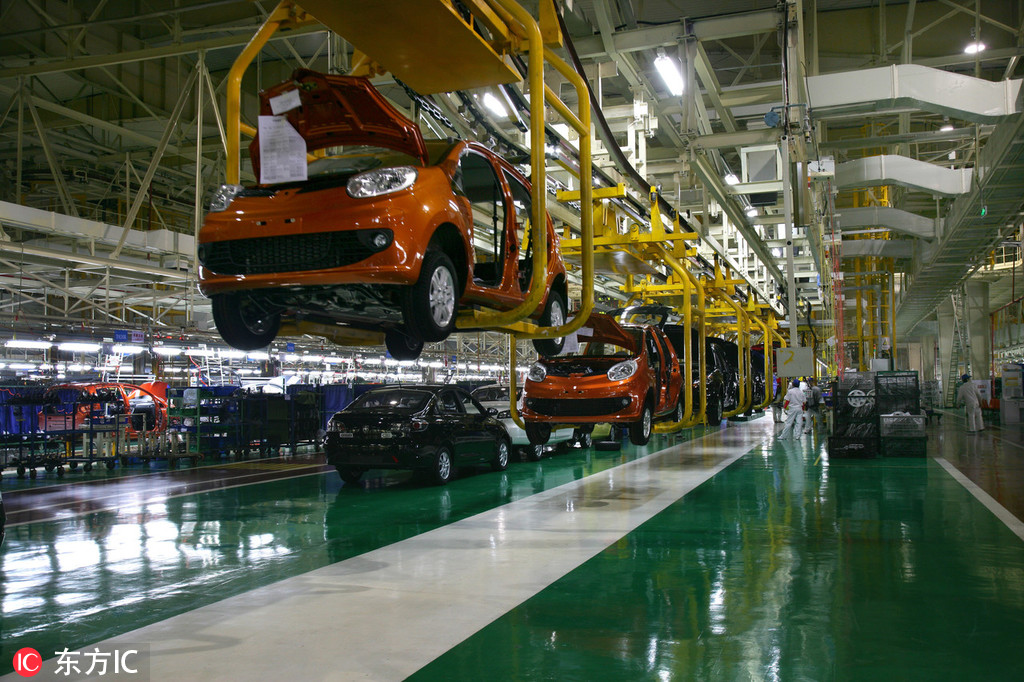Innovation drive helps grow farming area into smart hub


Investment in R&D, high-tech zones fuels the creation of Big Data Valley
Four decades ago, Xiantao village in Chongqing's Yubei district was home to farmers working small plots of land from dawn to dusk, just as their ancestors had done for thousands of years.
On the same spot today is Chongqing Xiantao Big Data Valley, an industrial park for emerging sectors such as cloud computing and cross-border e-commerce.
The park project is one of many examples of the transformation that has occurred in Yubei district since the central government launched reform and opening-up in 1978.
Chongqing became the country's fourth municipality in 1997, joining Beijing, Shanghai and Tianjin. A metropolis with more than 30 million people, it has a dynamic economy: GDP exceeded 1 trillion yuan ($144.8 billion) for the first time in 2011. Last year the figure reached 1.95 trillion yuan, up 9.3 percent year-on-year.
Located north of the Jialing River, Yubei covers 1,452 square kilometers and has a population of 1.6 million. It was once an agricultural county with large fields and few industrial enterprises, and was among the least-developed areas of Chongqing.
Yet efforts to boost technological innovation have seen Yubei grow into an industrial and high-tech power in western China. Its GDP has risen from 150 million yuan in 1978 to 144.7 billion yuan last year, leading the municipality's 38 districts and counties.
Yubei is now the largest automobile manufacturing base in Chongqing and a major hub for the production, import and export of smart devices.
"Yubei has paid great attention to technological innovation," said Wang Wenwu, director of the district's science and technology committee.
In 1982, a science research and development center was established in Yubei to develop and introduce new technologies to farmers. Three years later, a science development fund was set up with a government grant of 285,000 yuan.
With this support, the area went on to develop a series of agricultural products that have become well known nationwide, including pickles, tea and liquor.
In the 1990s, Yubei began to change from an agriculture county to an industrial district after the local authorities built large-scale development zones to attract investment.
"At that time, we already had a particular interest in high-tech companies that could help upgrade our industries," said Wang Huaiding, former head of Yubei.
In 1998, Changan Automobile, one of the country's largest carmakers, built a factory in Yubei to produce 150,000 sedans a year.
With the dawn of the 21st century, the government drafted a plan to build an "innovation ecosystem" to enhance the district's ability to support science research and development. Between 2013 and 2017, total R&D funding rose from 2.52 billion yuan to 5.7 billion yuan, with average annual growth of 26 percent.
Now, scientific R&D accounts for 3.94 percent of Yubei's GDP, the highest of any area in Chongqing.
As talent is key to innovation, the district plans to attract 1,000 high-level professionals from home and abroad in 10 pioneering technologies, including big data, cloud computing and artificial intelligence. It has also built a vocational college to teach big data skills.
In recent years, Yubei has won a number of national awards in science development and innovation, including being named "national model district in science advancement" and "most dynamic city in innovation".




































